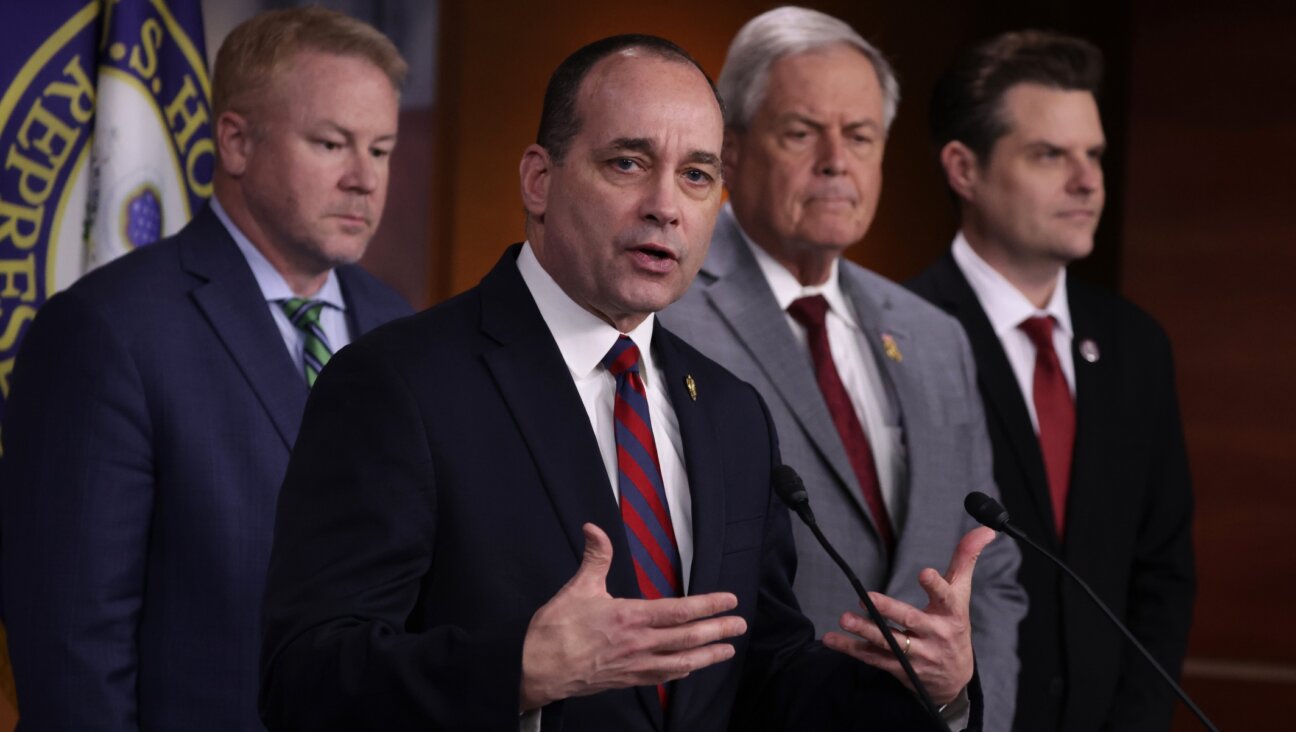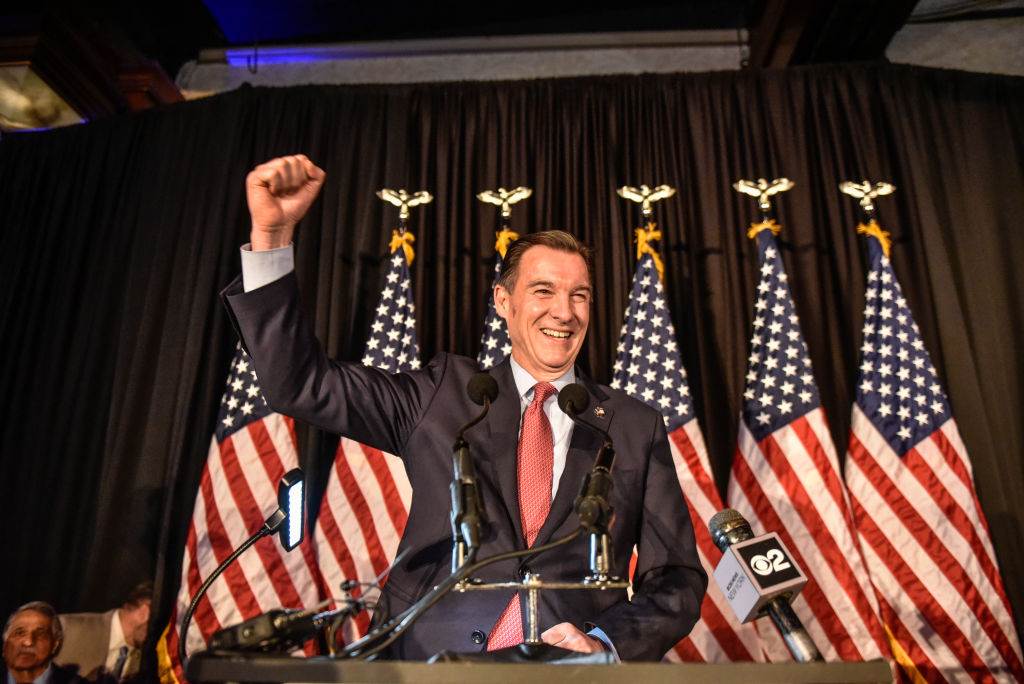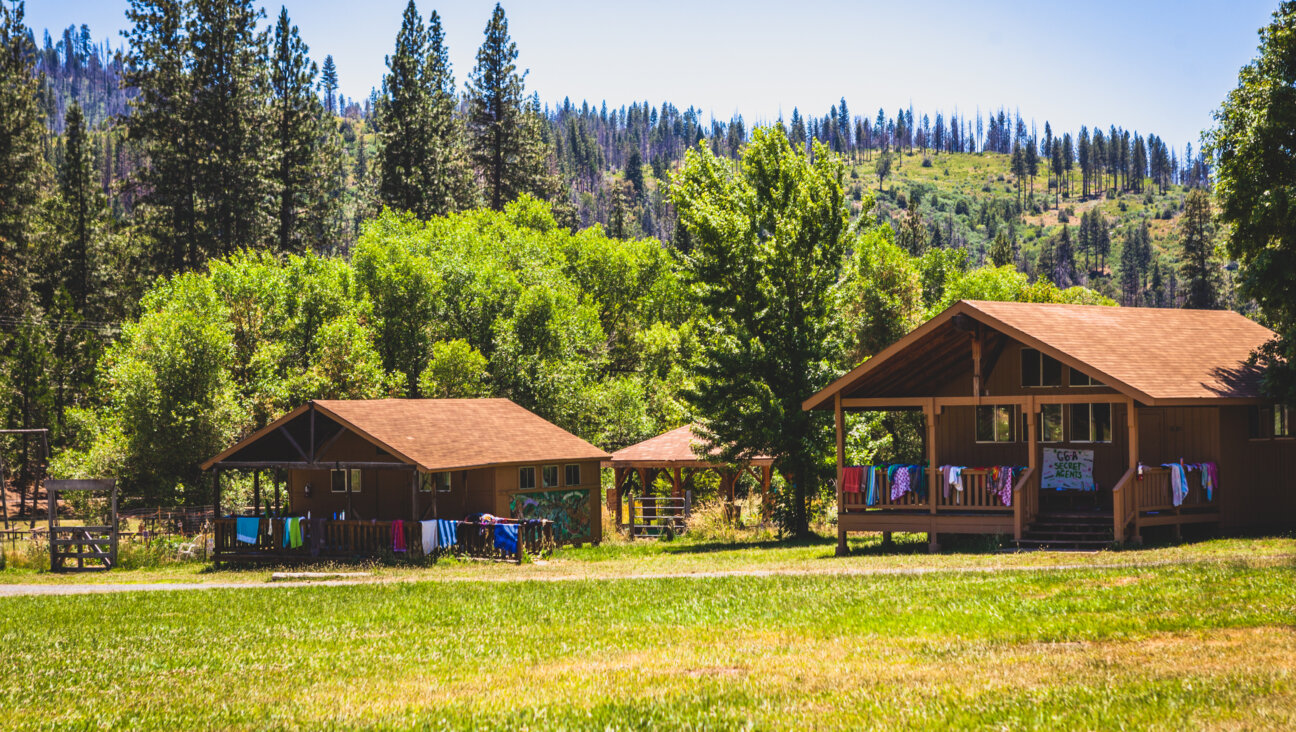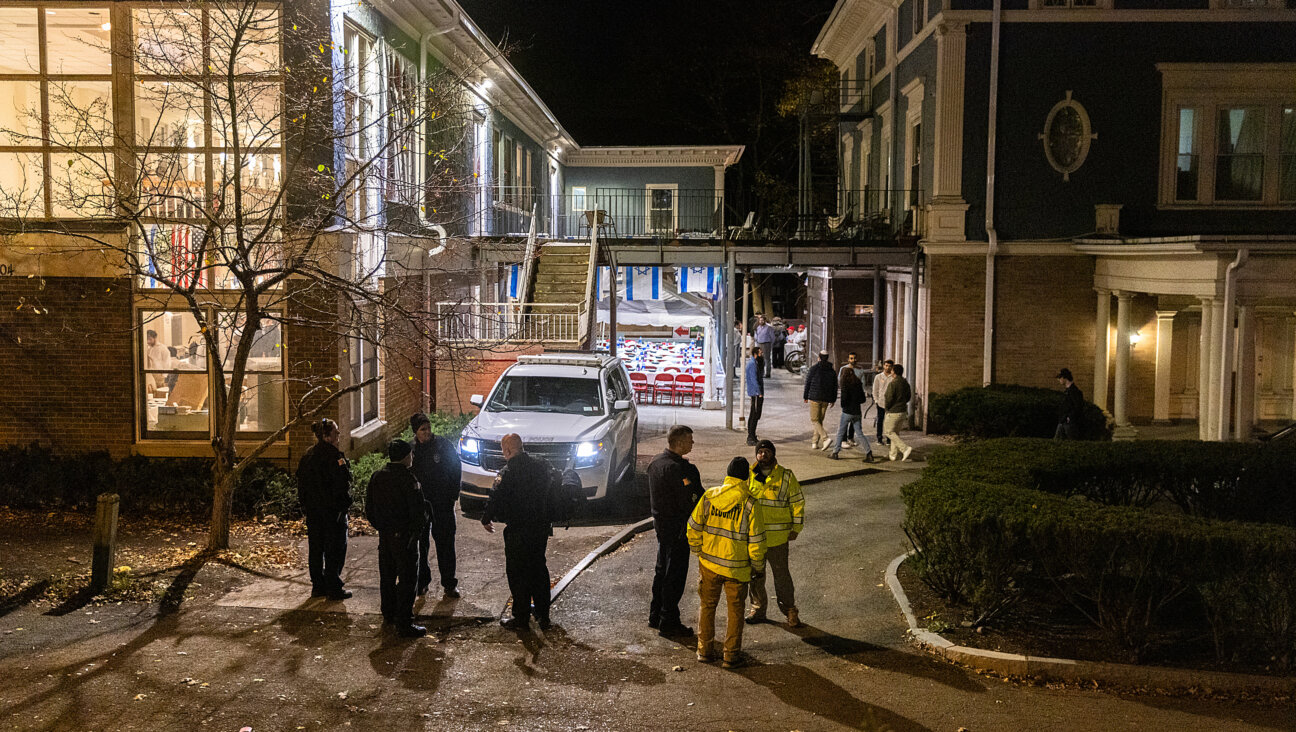Should I Let My Bisexuality Get In the Way of Conversion?

Image by Lily Padula
The Seesaw is a new kind of advice column in which a a broad range of columnists will address the real life issues faced by interfaith couples and families. Join the discussion by commenting on this post, sharing it on Facebook or following the Forward on Twitter. And keep the questions coming. You can email your quandaries, which will remain anonymous, to: [email protected]
Recently I’ve Been More Honest with Myself about my Bisexuality
I’m the product of a very loving intermarriage and at a sort of perplexing crossroads right now. My father is Jewish and my mother is not, and as a young child I had a Reform infant conversion which renders me halachically Jewish, but only to the Reform Movement and movements that hold by it. For the last four years I’ve been contemplating doing an Orthodox, specifically RCA, conversion. However, recently I have been being more honest with myself about my bisexuality and I am very aware of how much that is at odds with such a conversion. Too often I think about this, and the implications for my future children, my future marriage and my burial. —Uncertain
An Ambiguously Ambivalent Identity is a Time-honored Jewish Condition

JAMES PONET: You are indeed at a “perplexing crossroads” looking lucidly at the great questions of belonging: marriage, children, burial. Because the circumstances of your life have not provided you with clear identity markers, you are left wondering, Am I a Jew or a Gentile? Am I straight or gay? And you understandably seek an external corroboration, like an RCA conversion, to bring some bounded clarity to your life.
I suggest that living with an ambiguously ambivalent identity is an expression of a time- honored Jewish condition, that all forms of Judaism are, in great measure, exercises in the art of living in two worlds, two languages, with conflicting commitments, in order to sustain a mode of existence that is not amenable to the conventions of categorization. Is a Jew, for example, a member of a nation, an ethnos, a faith community, a political party, a victim class?
I hold that you already live the Jewish dilemma and that the wholeness you seek is not available through conversion or sexuality, through politics or communal affiliation. Not even through marriage. You seek an answer to the critical question, Who am I? I suggest that living within the perplexity of that question you may find answers which while unmeasurable are nonetheless tasteable as in the deep rest of a Shabbat, the poetry and music of a wedding, the storied musings of a Passover seder, a confession on Kippur, a meditation on the mystery of trying to know before Whom you stand.
As you know, there are a number of communities within which you may experience these tastes, including an Orthodox minyan in whose midst there are today, I assure you, a good number of participating Jews who are in fact bisexual. First find for yourself a congenial community; conversion may then follow organically.
James Ponet is the Howard M. Holtzmann Jewish Chaplain at Yale where he also is a visiting lecturer at the Law School. Fortunately he has been married over 40 years to Elana Ponet with whom he has 4 children and 2 grandchildren.
How Will Your Bisexuality Impact Your Intended Future Marriage?

HAROLD BERMAN: Your question is complex, and requires a sensitive, nuanced answer that is impossible to execute in these few paragraphs. Instead, I will raise some issues to consider, and suggest that if anyone should offer you a pat, easy answer, no matter what the answer, run the other way.
First, there is a fundamental issue, regardless of whether you practice Judaism or you convert. How will your bisexuality impact your intended future marriage? You don’t say whether you see yourself in a monogamous relationship with a man. But what kind of relationship you intend, how that would impact a future partner, your plans for children, and whether you feel a monogamous relationship is possible, are questions you must resolve before embarking on any kind of long-term relationship.
Regarding conversion, as an Orthodox Jew married to an Orthodox Jew who was born a Baptist, I’m going to be politically incorrect and say that Orthodox conversion is the best choice. It is accepted across the widest spectrum of the Jewish people and opens up the greatest opportunities for participation in Jewish life. Your Reform conversion wouldn’t meet the requirements of the fastest-growing parts of American Jewry, nor in Israel. But this isn’t a simple matter of pluralism, rather of Jewish substance. Orthodox conversion means accepting the mitzvot as binding. You don’t state your reasons for wanting an Orthodox conversion, but it will be virtually impossible absent a sincere commitment to observing the mitzvot. It is important to clarify your reasons for wanting to convert.
There are many nuances beyond the scope of the last two paragraphs. But how the issues of bisexuality and Orthodox conversion can be addressed – or not – depend largely on your answers to these questions. With sexuality, as with most things, the Torah pointedly addresses actions, not inclinations – which means that (and I am specifically not taking a position on what you should do) how you decide you can live your life while being true to yourself will be more determinative from a Torah perspective than feelings or inclinations. It is critical that you find an Orthodox mentor with experience and expertise in this area. I would suggest joining the Orthodox Conversion to Judaism Yahoo group, run by a rabbi who has worked with conversion candidates for 25 years. Or, if you wish to contact me at J-Journey, I can put you in touch with appropriate RCA rabbis.
Harold Berman is a veteran Jewish communal professional, and the Director of J-Journey, which provides mentoring and support for intermarried families exploring the possibilities of observant Jewish life. Harold is also, with his wife Gayle, the co-author of “Doublelife: One Family, Two Faiths and a Journey of Hope,” about their “intermarriage gone Jewish.”
Learn to Love Yourself ‘As Is’

KEREN R. MCGINITY: Comedian Yisrael Campbell describes converting three times in his autobiographical show “Circumcise Me.” After becoming first Reform, then Conservative, and eventually Orthodox he asks: “Was I always Jewish? Am I still not Jewish?” Although patrilineal-identified Jews are unfortunately not recognized as Jewish by the Conservative and Orthodox movements, you ARE Jewish and you are not alone. The question you are wrestling with is the same question many people wrestle with, “Who am I?” Being honest with yourself as you are doing is essential to finding your authentic self, so give yourself some credit. The challenge is how to reconcile your emerging bisexual identity with an apparent desire to have your Jewish identity validated by Orthodox Judaism.
The most important thing to do is to love yourself “as is” and not according to others’ definitions. Once you do that, you will be able to find the Jewish path and community that are right for you. There is no need to choose between being bisexual and being Orthodox, if that is indeed the direction you still want to go. Organizations such as Eshel and Keshet are increasingly building community for LGBT individuals in the Orthodox world and YCT’s visionary leaders of Open Orthodoxy support egalitarianism, Jewish pluralism, and same- sex marriage legislation. If, however, you still would not accept yourself as an Orthodox Jew because of your bisexuality, then your concerns about your future marriage, children, and burial will persist. In that case, you can always become more observant without necessarily converting to another stream of Judaism, dispelling with denominational labels altogether.
One last thought. When Orthodox-trained Rabbi Steve Greenberg told the rabbi of his young adulthood that he was attracted to both men and women, the response was: “You have twice the power to love. Use it carefully.” While you continue navigating your journey, take heart in knowing that you are doubly blessed.
Dr. Keren R. McGinity is an author-educator affiliated with Brandeis University. Her books include “Still Jewish: A History of Women and Intermarriage in America” and “Marrying Out: Jewish Men, Intermarriage, and Fatherhood.” Learn more at www://loveandtradition.com.























